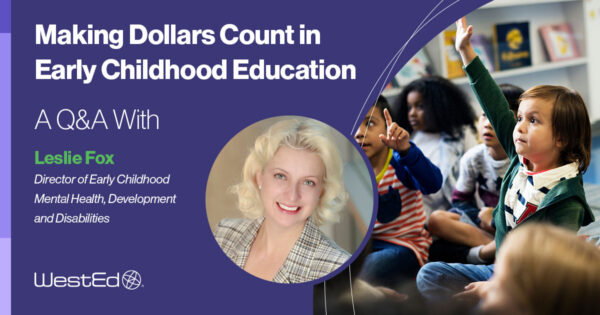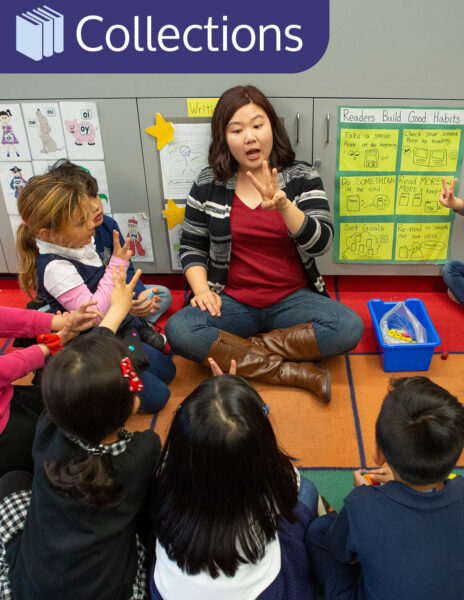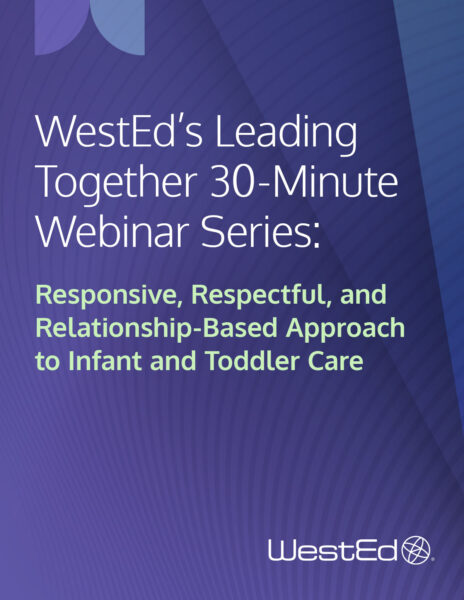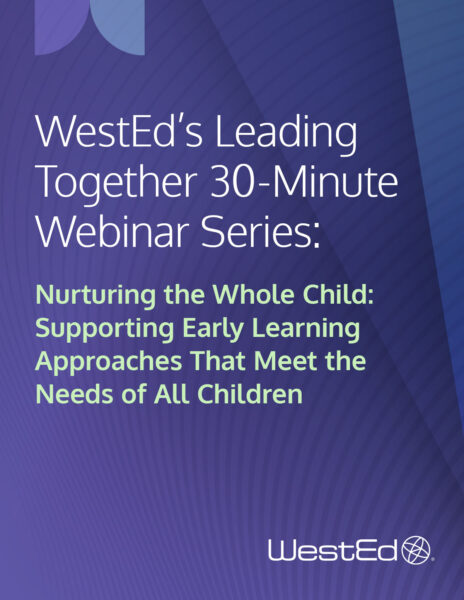
September 12, 2025
WestEd’s recent Leading Together webinar discussed how early childhood educators can nurture the whole child through comprehensive practices that meet the needs of all learners.
Led by Linda Brault, Director of Working Together for Inclusion and Belonging, and Ine Jack, Program Manager and Training Specialist, the webinar demonstrated how thoughtful approaches to support diverse learners benefit every child in early learning settings.
Understanding Comprehensive Support in Early Learning
Many educators could misconstrue comprehensive support as starting from scratch when working with children who have disabilities or delays. However, effective teaching builds on existing best practices while making intentional adaptations that enhance learning for everyone. As highlighted in the webinar, success means “the full and active participation of children with disabilities or delays in community activities, services, and programs designed for typically developing children.”
Children may arrive with formal diagnoses, health conditions, developmental differences, or challenging behaviors that aren’t formally labeled but still impact their classroom experience. Rather than waiting to see which children might need support, successful programs should proactively create flexible environments that accommodate varied learning needs from the start.
Grounding Practice in Development
Developmentally appropriate practice serves as the foundation for comprehensive early learning. This approach considers three critical elements:
- age-appropriate expectations
- individually appropriate strategies
- culturally meaningful contexts
Understanding typical development helps educators recognize that challenging behaviors often represent expected developmental stages rather than deliberate defiance.
Building a Sense of Belonging
Drawing from Maslow’s hierarchy of needs, the webinar explored belonging as a prerequisite for learning and how traditional approaches often invert the relationship between belonging and skill development. Instead of requiring children to “earn” their place through compliance or skill mastery, supportive environments prioritize creating authentic belonging first.
When children feel secure in their belonging, they can direct their energy toward learning and growth. Conversely, children who worry about their place in the classroom spend their cognitive resources on anxiety and fear, leaving less capacity for academic and social development.
Implementing Practical Strategies for Success
The webinar outlined three key elements for successful programs:
- Access: Designing environments where all children feel welcomed and valued
- Participation: Creating meaningful opportunities for engagement through individualized accommodation
- Supports: Integrating specialized services like speech therapy or occupational therapy into daily classroom routines rather than pulling children out for separate services
Behavior serves as communication, especially for young children who lack sophisticated verbal skills. Rather than viewing challenging behaviors as intentional disruption, educators can investigate what children are trying to communicate. This shift from “Why are they doing this?” to “What are they trying to tell me?” opens possibilities for more effective responses and support strategies.
Moving Forward Together
The webinar’s practical framework encourages educators to take these immediate steps:
- Observe for intentions: Notice what children are drawn to and consider their developmental perspective
- Reframe behavior as communication: Ask “What are they trying to tell me?” instead of “Why are they doing this?”
- Create flexible participation opportunities: Offer individualized ways for children to engage meaningfully
These strategies not only support children with identified needs but enhance the learning environment for all children, fostering peer learning, compassion, and stronger classroom communities.
When early childhood programs embrace truly comprehensive practices, they abandon the notion that children must conform to predetermined expectations to contribute meaningfully to their communities. Instead, they nurture the inherent gifts present in every child while building foundations for lifelong learning and belonging.
Watch the full webinar and view the other webinars in the series.
How We Help
Learn about the Working Together for Inclusion & Belonging effort at WestEd.










